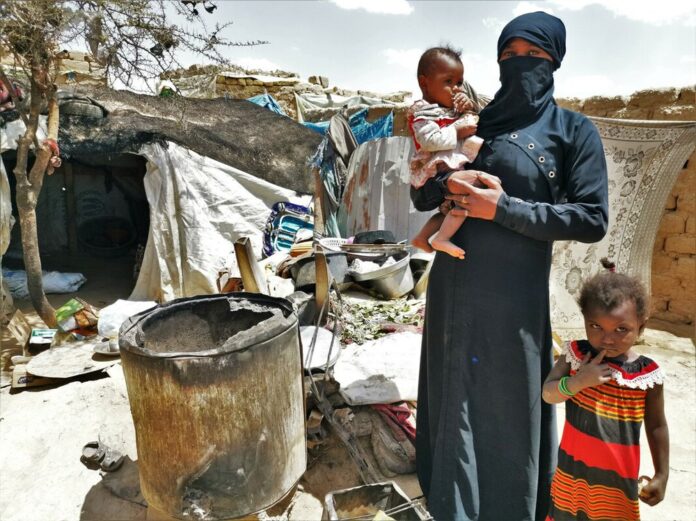More than half a million people are living in famine-like conditions and are on the brink of starvation, according to a new Oxfam report published today. Conflict combined with the economic impact of the pandemic and a worsening climate crisis has led to a six-fold increase in catastrophic levels of hunger since the beginning of 2020.
The report, The Hunger Virus Multiplies, estimates that as many as 11 people are dying of hunger and malnutrition each minute, 36 per cent more than the seven people dying around the world every minute as a result of Covid-19.
Overall, 155 million people around the world are facing crisis levels of hunger and malnutrition – a rise of 20 million compared to last year – with two out of every three people hungry primarily because of conflict. Some of the world’s worst hunger ‘hotspots’, including Afghanistan, Ethiopia, South Sudan, Syria and Yemen continue to suffer from conflict, and have witnessed a surge in extreme levels of hunger since last year.
At the same time, the economic fall-out of Covid-19 has deepened poverty and inequality and more than 400 weather-related disasters have increased hunger in communities many of which are already battered by conflict and coronavirus. Severely disrupted food production has led to a 40 per cent surge in global food prices, the highest rise in over a decade.
Danny Sriskandarajah, Oxfam GB Chief Executive said:
“The world cannot stand by while global hunger levels soar and half a million people face starvation due to the confluence of unrelenting conflict, Covid-19’s economic fall-out and a worsening climate crisis.
“Governments urgently need to do more to prevent conflict in the first place and to support those caught up in the crossfire, by providing funding and stepping in to ensure aid agencies can get vital humanitarian assistance where it is needed.
“It is unacceptable that starvation is often used as a weapon of war, with millions of people forced to flee their homes, their crops and livestock destroyed, and combatants denying them even the lifeline of humanitarian aid. The UN Security Council should hold to account all those who use this barbaric tactic.”
More than 350,000 people in Ethiopia’s Tigray region are experiencing famine-like conditions according to recent analysis – the largest number recorded since Somalia in 2011, when a quarter of a million Somalis died. The UN said last week that the numbers affected have increased and the humanitarian situation has worsened dramatically in recent weeks.
Mulu Gebre, 26, who was forced to flee her home in Tigray when nine months pregnant, told Oxfam: “I came to Mekele because I heard that food and milk were offered for infants. When I arrived here, I couldn’t find food even for myself. I need food especially for my child, who is only four months old and was born underweight.”







